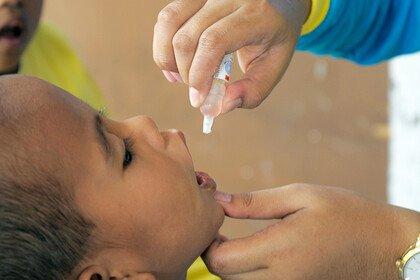
Effective ways to increase vaccination rates: What the evidence tells us
Vaccination rates for many diseases have slowed and are now at risk of falling, especially following the disruption caused by Covid-19.
This briefing aims to support global policy makers and others involved in immunisation to prioritise the most effective activities to increase vaccination rates and save lives.
What’s inside
-
a summary of the evidence on what works, and what doesn’t, for increasing vaccination rates
-
key recommendations for prioritising efforts to increase vaccination.
Who this is for
- policy makers and governments
- research funders
- NGOs working on immunisation
- anyone interested in research on vaccine uptake.
Key recommendations
1. Remove the practical barriers to vaccination and build resilient immunisation systems
- Poor availability of and access to immunisation services are still the biggest barriers for vaccination worldwide – both for the most vulnerable who lack access to basic healthcare services, and in areas where vaccines are available but not convenient.
- Simple solutions can have a huge impact. For example, phone call reminders can increase vaccination appointments by 18%.
2. Change the way we talk about ‘vaccine hesitancy’
- This phrase is easily misinterpreted. It can overemphasise the threat posed by low vaccine confidence and distract from larger issues such as access to immunisation.
-
Instead, it’s important to be specific about the different barriers that stop people getting vaccinated and what can be done to remove them, avoiding tactics like myth-busting and focusing on amplifying positive and accurate information.
3. Strengthen the voices of healthcare workers in presenting vaccination as a social norm
- Some of the most powerful and trustworthy voices for increasing vaccine uptake are healthcare workers.
- They must have the latest evidence-based tools and guidance to feel confident in presenting vaccination as normal and expected.
4. Address the research gap
- Most available research relies on evidence from high-income settings.
- Future research should prioritise understanding what works to improve vaccination rates in different countries and why, with a focus on improving the evidence base for low-and middle-income countries.
Downloads
The barriers that prevent immunisation are varied and complex, and efforts to address them need to be too. However we’ve seen that some approaches to tackle these barriers are causing more harm than good. That’s why it's essential that everyone working on immunisation is led by the evidence on what works, and what does not, to improve vaccine uptake.

